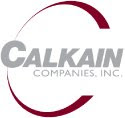 Walgreens has been considered the bellwether for net lease properties, its high credit ratings (A2 for Moody’s and A+ for S&P) ensuring stability relative to the market. For the past year its cap rates have been climbing and many forecasted they would continue to rise till years end, however, recent developments may indicate that are cap rates leveling off. If Walgreens can be considered a bellwether for the market, this could point to wider implications.
Walgreens has been considered the bellwether for net lease properties, its high credit ratings (A2 for Moody’s and A+ for S&P) ensuring stability relative to the market. For the past year its cap rates have been climbing and many forecasted they would continue to rise till years end, however, recent developments may indicate that are cap rates leveling off. If Walgreens can be considered a bellwether for the market, this could point to wider implications.Starting in late 2008 fears began to mount about the inflationary effects of governmental spending. The 25 year flat lease, customary on most Walgreens net lease properties, became increasing unattractive as a long term hold asset. Furthermore, the glut of properties on the market, 200-250 in 2008-09 compared to around 100 in 2007, placed upward pressure on cap rates. As a result Walgreens witnessed cap rates go from an average of 6.3% in Q4 2008 to 7.9% in Q3 2009. Some predicted average cap rates would exceed 8% by the end of 2009. However, as the year ended and we entered 2010, it became clear the upward motion of cap rates had ceased.
There is now a sense of stabilization in regards to Walgreens cap rates. It has been reported they averaged out at 7.5% for 2009, a far cry from the 8% some predicted. This could be because fears over future inflation have subsided and/or supply has decreased. Certainly there is a perception that the economy has taken a few steps back from the precipice of disaster encountered in 2008. Such developments could downplay the risk of inflation in people’s minds. It is also known that the supply of Walgreens has dropped substantially; there are now much less than the 200 or so properties previously on the market. This could mean that the market has already achieved stabilization through our current cap rate increases and now stands at a rough equilibrium.
Though it seems Walgreens has reached some cap rate stability, it is still unclear whether or not this applies to the rest of the market. There are still reports of large bid-ask spreads between buyers and sellers, so the net lease market has certainly not leveled out just yet. However, judging from Walgreens history as an indicator, it may not be far behind.







